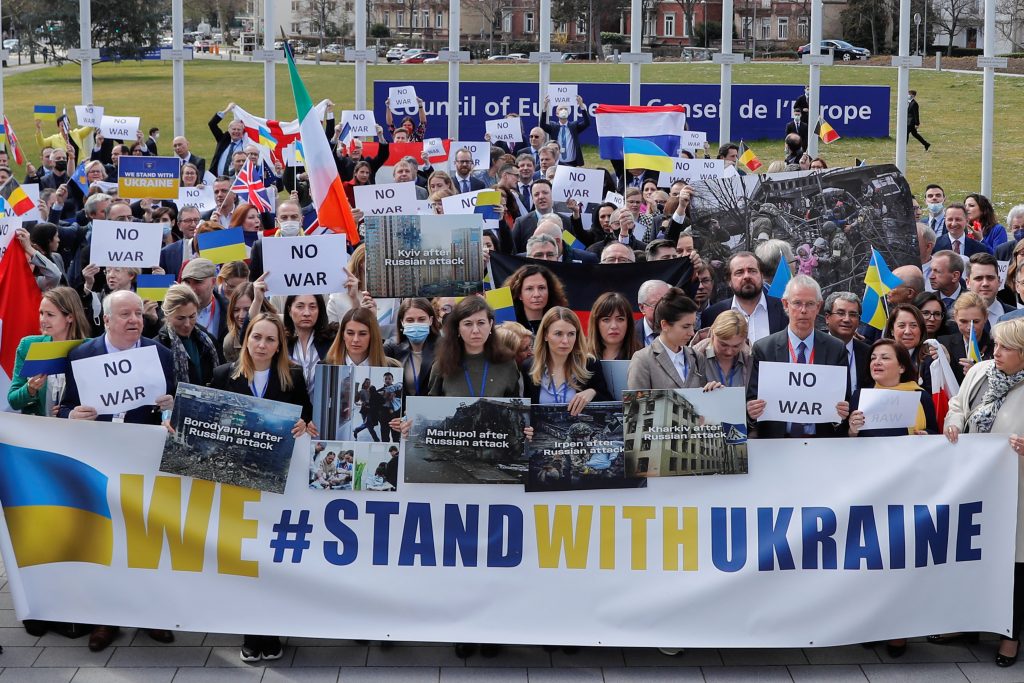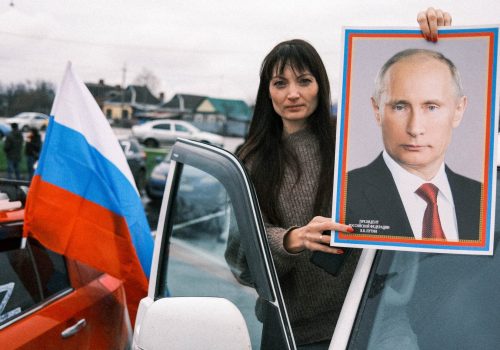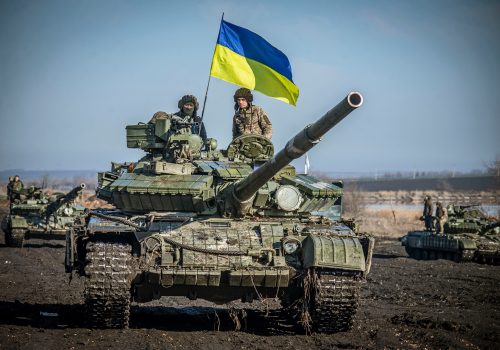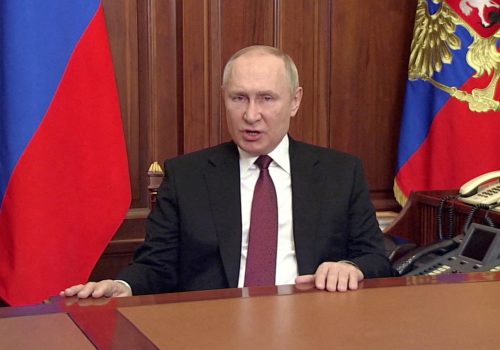Today, as Russia wages war on Ukraine, the European Union has risen to the occasion and rallied to support the Ukrainian people. Ukraine has unified the EU like never before by giving it a renewed sense of purpose.
This emphatic EU reaction is entirely appropriate as Putin’s war is a direct attack on Ukraine’s European choice and on the values that the EU itself has long claimed to champion. Europe must now seize the historic moment and recognize that the ultimate response to Russian revanchist aggression is EU membership for Ukraine.
The best way to understand the EU-Ukraine relationship, without an in-depth examination of Ukraine’s 1000-year history, is to look back to the decisive days of late November 2013. Ukraine was on the verge of signing a much-anticipated association agreement with the European Union when Ukrainian President Viktor Yanukovych suddenly performed a dramatic U-turn under extreme pressure from the Kremlin.
Yanukovych’s attempt to abandon European integration and turn the country towards Russia sparked enormous protests across Ukraine. This movement was referred to by many as the “Euromaidan Revolution” in reference to Ukraine’s European choice and the central square (“maidan”) in Kyiv which served as the focal point of the protests.
Millions of Ukrainians took part in the revolution, standing for months in sub-zero winter temperatures despite the ever-present threat of violence from gangs of government thugs and riot police. The confrontation reached a bloody climax in late February 2014 with dozens of protesters gunned down in central Kyiv. In the aftermath of the massacre, Yanukovych’s remaining allies deserted him and he fled to Russia.
Stay updated
As the world watches the Russian invasion of Ukraine unfold, UkraineAlert delivers the best Atlantic Council expert insight and analysis on Ukraine twice a week directly to your inbox.
Ukrainians in their millions risked their personal safety and economic security in order to join the Euromaidan protests because they believed in the country’s civilizational choice of a European future. Eight years on, they are once again demonstrating incredible bravery and giving their lives in defense of the same European values that drove the 2014 revolution.
The Ukrainians who are currently defending their country against Putin’s war of destruction epitomize the core European values of peace, dignity, tolerance and human rights. They are showing a readiness to fight for these values that is resonating with audiences elsewhere in Europe who have come to take such things for granted and are now being reminded that freedom is not free.
In 2019, Ukraine enshrined its commitment to membership of the European Union in the country’s constitution. This national goal was reiterated in the first days of the current war when President Zelenskyy signed Ukraine’s official application for EU membership. This application has since received resounding support from the European Parliament.
The time has now come for Brussels to openly embrace Ukraine’s membership bid. While EU leaders have recently spoken encouragingly of Ukraine’s place within the “European family,” the response to Ukrainian calls for fast-track membership during a March 10 EU summit in Versailles was disappointingly underwhelming.
Eurasia Center events

The future of the EU depends on its readiness to act in accordance with the principle that any European country which shares European values can become part of the European Union. Continuing to stall on Ukrainian membership would represent a victory for Putin’s use of military force that would only encourage further acts of aggression along the EU’s eastern flank and elsewhere in other European regions such as the Balkans.
Policies of appeasement have clearly failed. European leaders must now abandon their earlier fears of provoking Putin and actively pursue Ukrainian integration. As the current war has illustrated, nothing is more provocative to Putin than the geopolitical isolation of Ukraine.
The EU is stronger today because of the increased unity generated by opposition to the war in Ukraine. The courage and resolve displayed by millions of Ukrainians has underlined the enduring importance of the values at the heart of the EU’s own mission and highlighted the fragility of the peace that European integration has done so much to make possible.
Put simply, the European Union needs Ukraine. It needs Ukraine in order to demonstrate its own commitment to European values and its opposition to the authoritarian alternative being advanced by Vladimir Putin.
Perhaps most of all, the EU needs Ukraine because no other country so clearly embodies the principles of democracy and peaceful coexistence underpinning the grand project of a united Europe. If EU leaders reject Ukraine at this historic moment, that project will soon find itself without the firm foundations it currently enjoys.
Paul Grod is the President of the Ukrainian World Congress.
Further reading
The views expressed in UkraineAlert are solely those of the authors and do not necessarily reflect the views of the Atlantic Council, its staff, or its supporters.

The Eurasia Center’s mission is to enhance transatlantic cooperation in promoting stability, democratic values and prosperity in Eurasia, from Eastern Europe and Turkey in the West to the Caucasus, Russia and Central Asia in the East.
Follow us on social media
and support our work
Image: Members of the Parliamentary Assembly of the European Council (PACE) and President Tiny Kox display banners and posters in front of the Council of Europe building, on the day Ukrainian President Volodymyr Zelenskyy addresses an extraordinary session to discuss Russia's invasion of Ukraine, via videolink in Strasbourg, France. March 14, 2022. (REUTERS/Arnd Wiegmann)




